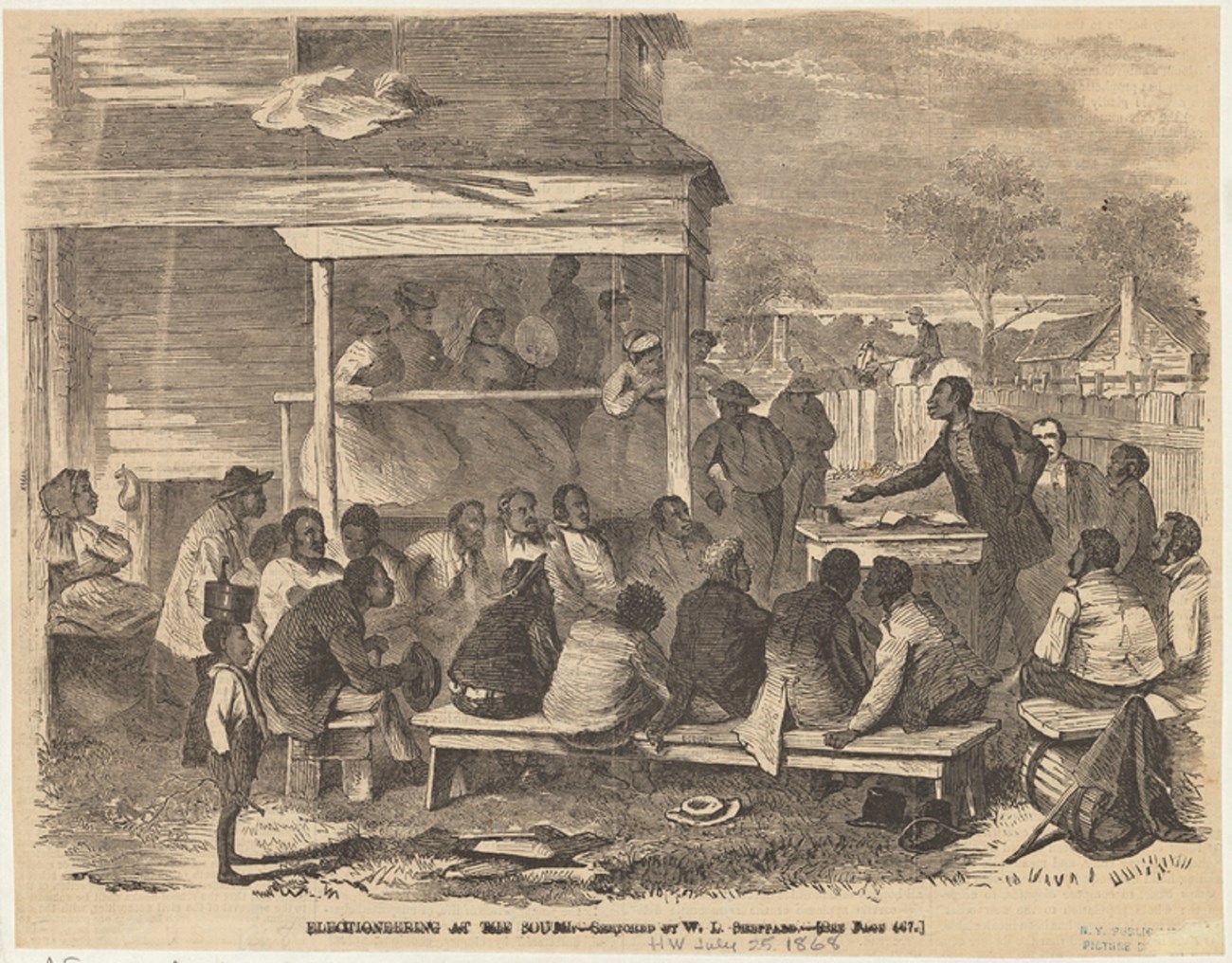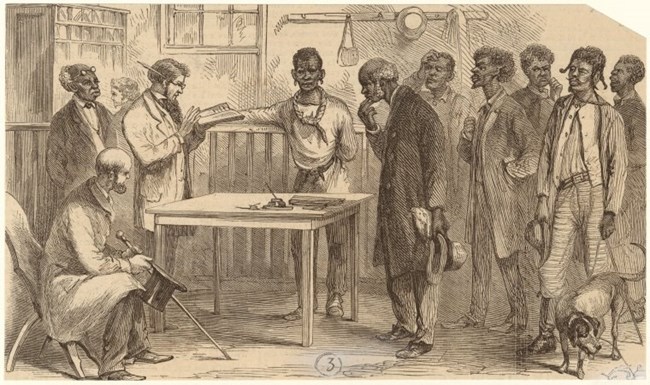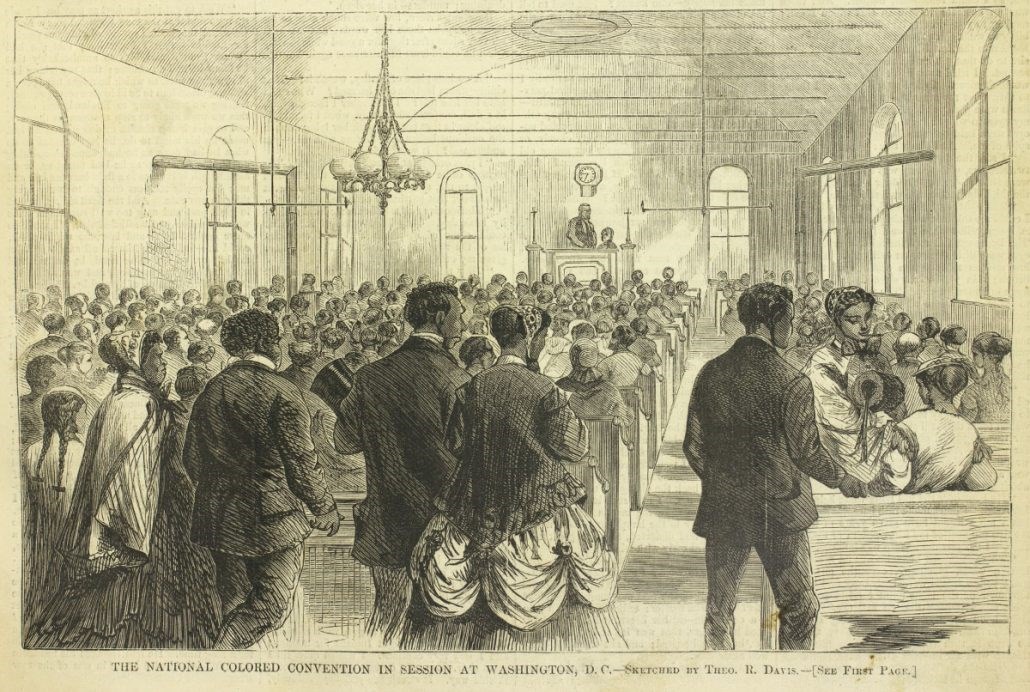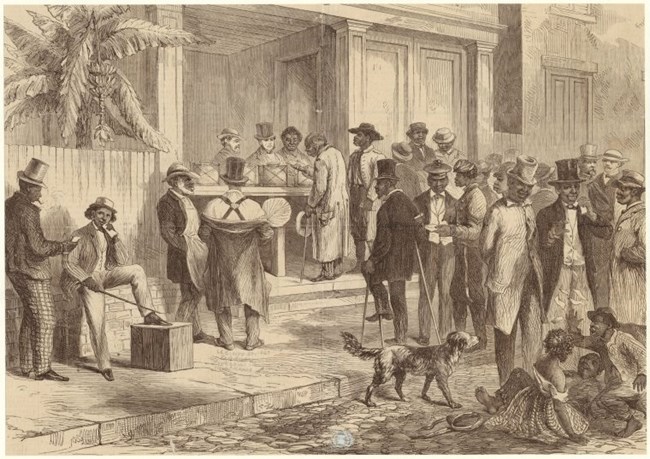Part of a series of articles titled Suffrage in America: The 15th and 19th Amendments.
Previous: Civil Rights: Whose Voice is Heard?
Next: The Nineteenth Amendment
Article

Art and Picture Collection, The New York Public Library.
https://digitalcollections.nypl.org/items/510d47e1-3fa3-a3d9-e040-e00a18064a99
“Do you believe the Declaration of Independence … that men are created with equal rights…?”
Harper’s Weekly editor George William Curtis posed this question in 1865. Abraham Lincoln had issued the Emancipation Proclamation two years earlier, and the United States was in the process of ratifying the Thirteenth Amendment, which abolished slavery. The amendment ensured the freedom of enslaved African Americans, though they still lacked many rights and protections.

Art and Picture Collection, The New York Public Library.
https://digitalcollections.nypl.org/items/510d47e1-3fa4-a3d9-e040-e00a18064a99
One of those rights was the right to vote, also known as suffrage or enfranchisement. African Americans had been fighting for the right to participate in the political process since before the Civil War. They argued that they deserved the same rights as white citizens. Furthermore, over 200,000 Black men had fought in the Civil War. They believed that they should be rewarded for their service with full citizenship. The Fourteenth Amendment, ratified in 1868, stated that everyone born or naturalized in the U.S. was a citizen. African Americans were now citizens, but they still could not vote.

Courtesy of the Library Company of Philadelphia, https://librarycompany.org/
In 1869, Republicans in Congress proposed another amendment to address suffrage. The Fifteenth Amendment would guarantee protection against racial discrimination in voting. Many women’s rights activists objected to the proposed amendment because the protections would only apply to men. Still, enough states approved the Fifteenth Amendment that it was adopted in 1870.

Art and Picture Collection, The New York Public Library
https://digitalcollections.nypl.org/items/510d47e1-3fd9-a3d9-e040-e00a18064a99
Black men began voting in local, state, and national elections, and ran for political office. Their votes and leadership helped create access to jobs, housing, and education for African Americans. However, in the 1890s many Southern states passed laws that made it more difficult for African Americans to vote. The Fifteenth Amendment had a significant loophole: it did not grant suffrage to all men, but only prohibited discrimination on the basis of race and former slave status. States could require voters to pass literacy tests or pay poll taxes -- difficult tasks for the formerly enslaved, who had little education or money. Because of these discriminatory laws, only a small number of African Americans voted over the next 70 years. During the twentieth century, African Americans fought for civil rights through organizations such as the National Association for the Advancement of Colored People and the National Urban League and through the efforts of individuals like Booker T. Washington and W.E.B. DuBois. The Voting Rights Act, adopted in 1965, offered greater protections for suffrage.
Though the Fifteenth Amendment had significant limitations, it was an important step in the struggle for voting rights for African Americans and it laid the groundwork for future civil rights activism.
Consider This:
What does citizenship mean to you?
How do you define being free? Are you free?
Part of a series of articles titled Suffrage in America: The 15th and 19th Amendments.
Previous: Civil Rights: Whose Voice is Heard?
Next: The Nineteenth Amendment
Last updated: October 9, 2020